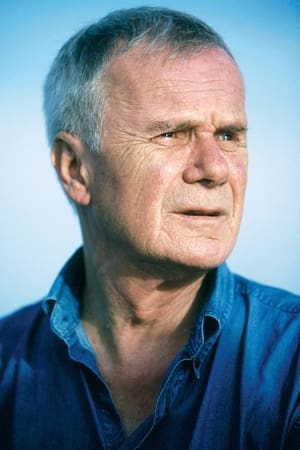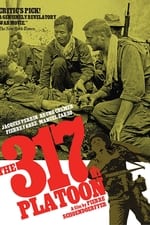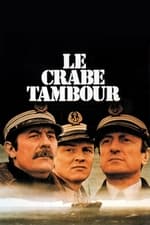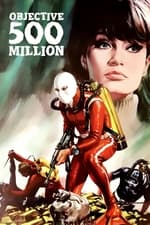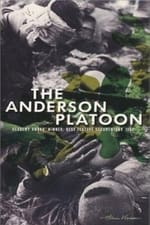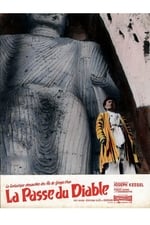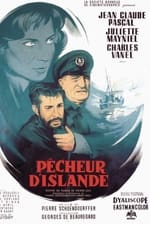Zur Person
Bekannt für Regie
Auftritte 20
Geschlecht Männlich
Geboren am 5. Mai 1928
Verstorben am 14. März 2012 (83 Jahre alt)
Geboren in Chamalières, Puy-de-Dôme, France
Auch bekannt als
- -
Datenstand
100
Genial! Das sieht gut aus!
Anmelden um einen Fehler zu melden
Biografie
Pierre Schoendoerffer (5 May 1928 – 14 March 2012) was a French film director, a screenwriter, a writer, a war reporter, a war cameraman, a renowned First Indochina War veteran, a cinema academician. He was president of the Académie des Beaux-Arts for 2001 and for 2007.
In 1967, he was the winner of the Academy Award for Best Documentary Feature for The Anderson Platoon. The film followed a platoon of American soldiers for six weeks at the height of fighting in Vietnam during 1966.
Pierre Schoendoerffer was born in Chamalières of a French Alsatian Protestant family. As Alsace was a territory contested and annexed in the 17th, 19th and 20th centuries by both France and Germany leading to the Franco-Prussian War (1870) next World War I (1914–18), his forefathers were French, and lost all their belongings.
His maternal grandfather, who was an 1870 veteran, volunteered in the French Army in 1914 at the age of 66 and the rank of captain. He was killed during the Second Battle of the Aisne at Chemin des Dames. His father was the director of the Annecy hospital and died shortly after the end of the battle of France (1940), where he was injured.
He met his wife Patricia in Morocco (then a Spanish-French joint protectorate), she was a journalist for France-Soir. They had three children, actor and screenwriter Frédéric Schoendoerffer, director and producer Ludovic Schoendoerffer and actress Amélie Schoendoerffer.
Pierre Schoendoerffer died, aged 83, on 14 March 2012 in France.
During World War II, Schoendoerffer lost his father and was not doing well with his studies at school in Annecy. In winter 1942–43, he read Joseph Kessel's epic adventure novel Fortune Carrée (1932), which changed his ambitions; he wanted to become a mariner and travel the world.
In 1946, he spent his summer as a fisherman aboard a small fishing trawler in the Bourgneuf-en-Retz bay, near Pornic, Pays de la Loire (close to Brittany). From this experience he would later direct Than, the Fisherman shot in Vietnam, and Iceland Fisherman.
The following year he went back to the Pays de la Loire region and embarked on a Swedish cargo ship at Boulogne.
In 1947, on board a merchant navy coaster, he sailed for two years in the Baltic Sea and North Sea. This experience would later find echoes in Seven Days at Sea, The Drummer-Crab and even in Above the Clouds.
From 1949 to 1950 he left the sea to fulfill mandatory military service in the Alpine infantry's 13e Bataillon de Chasseurs Alpins ("13th Alpine Hunters Battalion", 13e BCA) based in Chambéry and Modane, Rhône-Alpes. The Alpine infantry would later be the title character's corps in The Honor of a Captain.
Young Schoendoerffer had realized he was not born to be a mariner, but he did not want to be a soldier either, thinking he would be wasting his time. What he wanted to do was filmmaking. As he failed to enter the television and cinema industries, he began photography instead. One day as he read a Le Figaro article about war cameraman Georges Kowal, Killed in action during the First Indochina War, he decided to try his luck in the Service Cinématographique des Armées ("Armies' Cinematographic Service", SCA, now ECPAD). ...
Source: Article "Pierre Schoendoerffer" from Wikipedia in English, licensed under CC-BY-SA 3.0.
Pierre Schoendoerffer (5 May 1928 – 14 March 2012) was a French film director, a screenwriter, a writer, a war reporter, a war cameraman, a renowned First Indochina War veteran, a cinema academician. He was president of the Académie des Beaux-Arts for 2001 and for 2007.
In 1967, he was the winner of the Academy Award for Best Documentary Feature for The Anderson Platoon. The film followed a platoon of American soldiers for six weeks at the height of fighting in Vietnam during 1966.
Pierre Schoendoerffer was born in Chamalières of a French Alsatian Protestant family. As Alsace was a territory contested and annexed in the 17th, 19th and 20th centuries by both France and Germany leading to the Franco-Prussian War (1870) next World War I (1914–18), his forefathers were French, and lost all their belongings.
His maternal grandfather, who was an 1870 veteran, volunteered in the French Army in 1914 at the age of 66 and the rank of captain. He was killed during the Second Battle of the Aisne at Chemin des Dames. His father was the director of the Annecy hospital and died shortly after the end of the battle of France (1940), where he was injured.
He met his wife Patricia in Morocco (then a Spanish-French joint protectorate), she was a journalist for France-Soir. They had three children, actor and screenwriter Frédéric Schoendoerffer, director and producer Ludovic Schoendoerffer and actress Amélie Schoendoerffer.
Pierre Schoendoerffer died, aged 83, on 14 March 2012 in France.
During World War II, Schoendoerffer lost his father and was not doing well with his studies at school in Annecy. In winter 1942–43, he read Joseph Kessel's epic adventure novel Fortune Carrée (1932), which changed his ambitions; he wanted to become a mariner and travel the world.
In 1946, he spent his summer as a fisherman aboard a small fishing trawler in the Bourgneuf-en-Retz bay, near Pornic, Pays de la Loire (close to Brittany). From this experience he would later direct Than, the Fisherman shot in Vietnam, and Iceland Fisherman.
The following year he went back to the Pays de la Loire region and embarked on a Swedish cargo ship at Boulogne.
In 1947, on board a merchant navy coaster, he sailed for two years in the Baltic Sea and North Sea. This experience would later find echoes in Seven Days at Sea, The Drummer-Crab and even in Above the Clouds.
From 1949 to 1950 he left the sea to fulfill mandatory military service in the Alpine infantry's 13e Bataillon de Chasseurs Alpins ("13th Alpine Hunters Battalion", 13e BCA) based in Chambéry and Modane, Rhône-Alpes. The Alpine infantry would later be the title character's corps in The Honor of a Captain.
Young Schoendoerffer had realized he was not born to be a mariner, but he did not want to be a soldier either, thinking he would be wasting his time. What he wanted to do was filmmaking. As he failed to enter the television and cinema industries, he began photography instead. One day as he read a Le Figaro article about war cameraman Georges Kowal, Killed in action during the First Indochina War, he decided to try his luck in the Service Cinématographique des Armées ("Armies' Cinematographic Service", SCA, now ECPAD). ...
Source: Article "Pierre Schoendoerffer" from Wikipedia in English, licensed under CC-BY-SA 3.0.
Regie
|
||||||
|
||||||
|
||||||
|
||||||
|
||||||
|
||||||
|
||||||
|
||||||
|
||||||
|
Drehbuch
|
|||
|
|||
|
|||
|
|||
|
|||
|
|||
|
|||
|
Darsteller
|
||||||
|
||||||
|
||||||
|
||||||
|
||||||
|
Produktion
|
|||
|
Kamera
|
